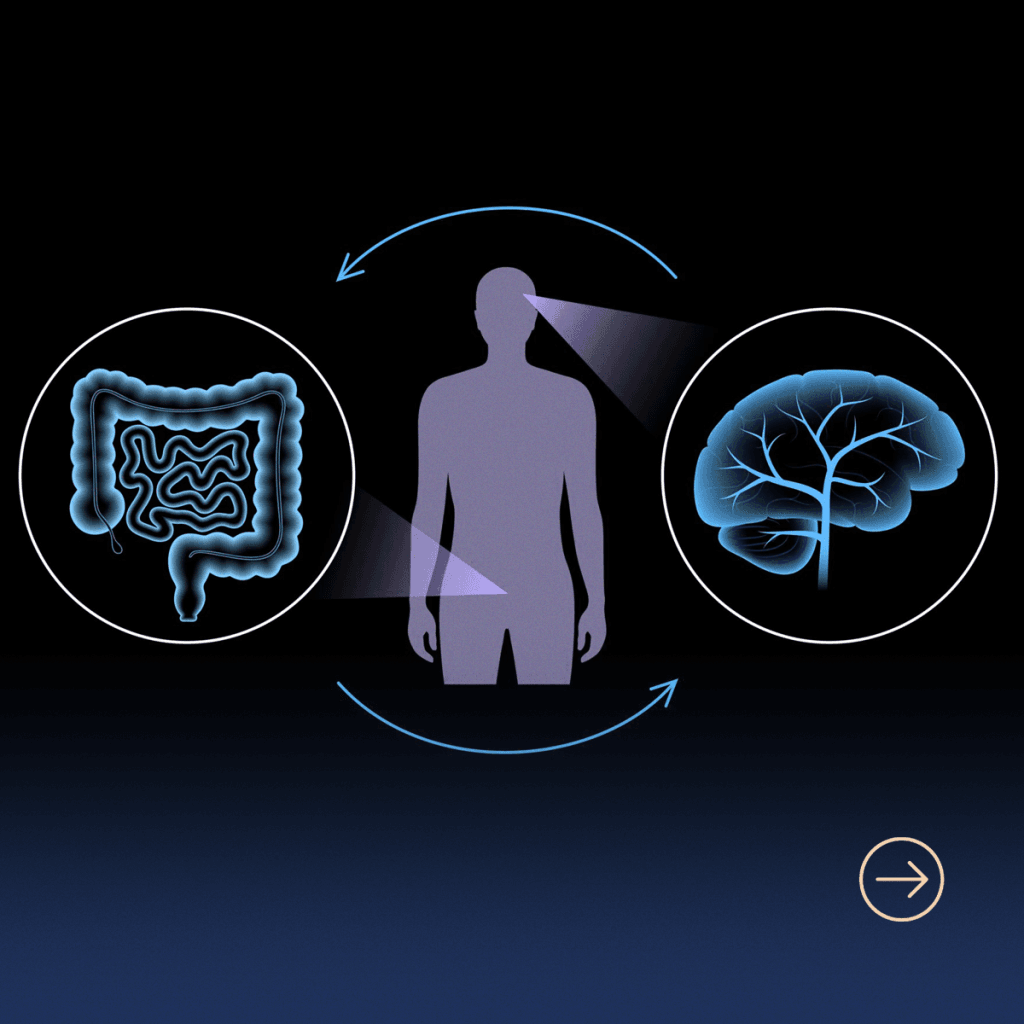In addition to hypothyroidism, our digestive system plays a central role in the development of low energy, mood fluctuations, and depression. A weakened digestion means our body cannot properly utilize nutrients from food – especially proteins and minerals. This not only affects our cellular nutrition but also the production of neurotransmitters such as serotonin and GABA, which are essential for well-being, stable mood, and relaxation.
These neurotransmitters are largely produced by specific bacteria in the colon. But they, too, need essential amino acids like lysine to stay active. If these are missing, serotonin and GABA production drops – and with it, our ability to manage stress, maintain energy, and stay emotionally balanced.
The Role of Stomach Acid in Digestion & Reflux
Many people suffer from reflux, heartburn, or GERD. A common misconception is that these symptoms are caused by too much stomach acid. In reality, the opposite is true: they stem from too little stomach acid.
Only when the stomach reaches a highly acidic pH (around 1–2) can food be properly broken down, pathogens neutralized, and the contents passed on to the small intestine. If this acidity is not reached – due to age or medication like acid blockers – food stays in the stomach too long, ferments, and pushes upward into the esophagus, causing discomfort.
Many people treat this with further acid-reducing agents, which only worsen the problem over time: nutrient absorption decreases, the microbiome suffers, inflammation increases – and the body’s self-repair weakens.
Digestion & Mental Health: Serotonin and GABA from the Gut
The microbes in the colon produce neurotransmitters such as serotonin and GABA, which influence mood, sleep, mental clarity, and resilience. To function properly, these bacteria rely on essential amino acids, particularly lysine – a building block for these neurotransmitters.
If our body can’t supply enough amino acids due to poor digestion, these bacteria cannot produce the neurochemicals we need. The result: restlessness, anxiety, low mood, and poor sleep.
What Can You Do?
1. Avoid acid blockers: Long-term use of antacids and PPIs reduces acid even further. Talk to your doctor before discontinuing.
2. Support digestion: Digestive enzymes help break down food thoroughly and destroy harmful invaders.
3. Eliminate harmful gut bacteria: Probiotics help remove bad bacteria and their protective biofilms.
4. Rebuild healthy gut flora: Probiotics support the growth of good bacteria that produce serotonin and GABA.
5. Increase protein intake: Essential amino acids are the building blocks of digestive enzymes, stomach acid, and neurotransmitter-producing bacteria.
The Role of DAMINOC
Daminoc delivers exactly these essential amino acids in highly bioavailable form. It helps:
- Stimulate the body’s own production of stomach acid and enzymes
- Repair stomach and intestinal cells damaged by low acidity
- Nourish the gut bacteria responsible for serotonin and GABA production
Daminoc therefore supports not only muscle growth but also digestion, mental health, and energy.


